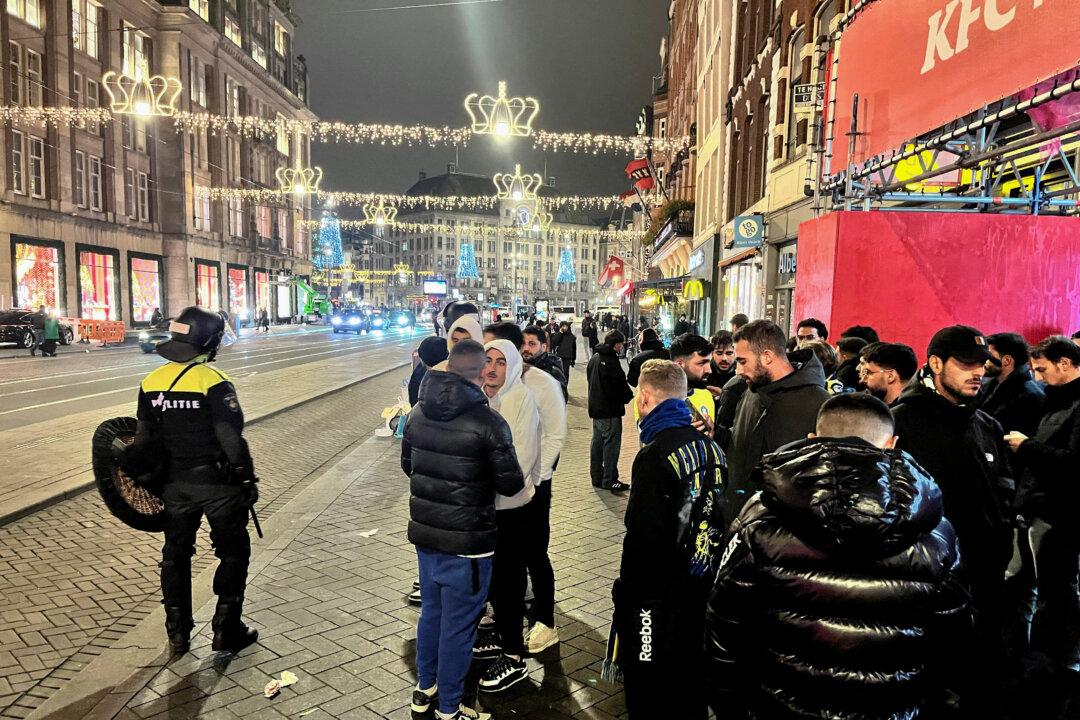Around 60 people have been arrested in Amsterdam after fans of an Israeli soccer team faced overnight anti-Semitic attacks in the streets of the Netherlands’ capital.
Reports of scenes across Amsterdam on the evening of Nov. 7 showed Jewish Israeli football fans being targeted in a series of violent attacks after the match between Maccabi and Ajax Amsterdam.





